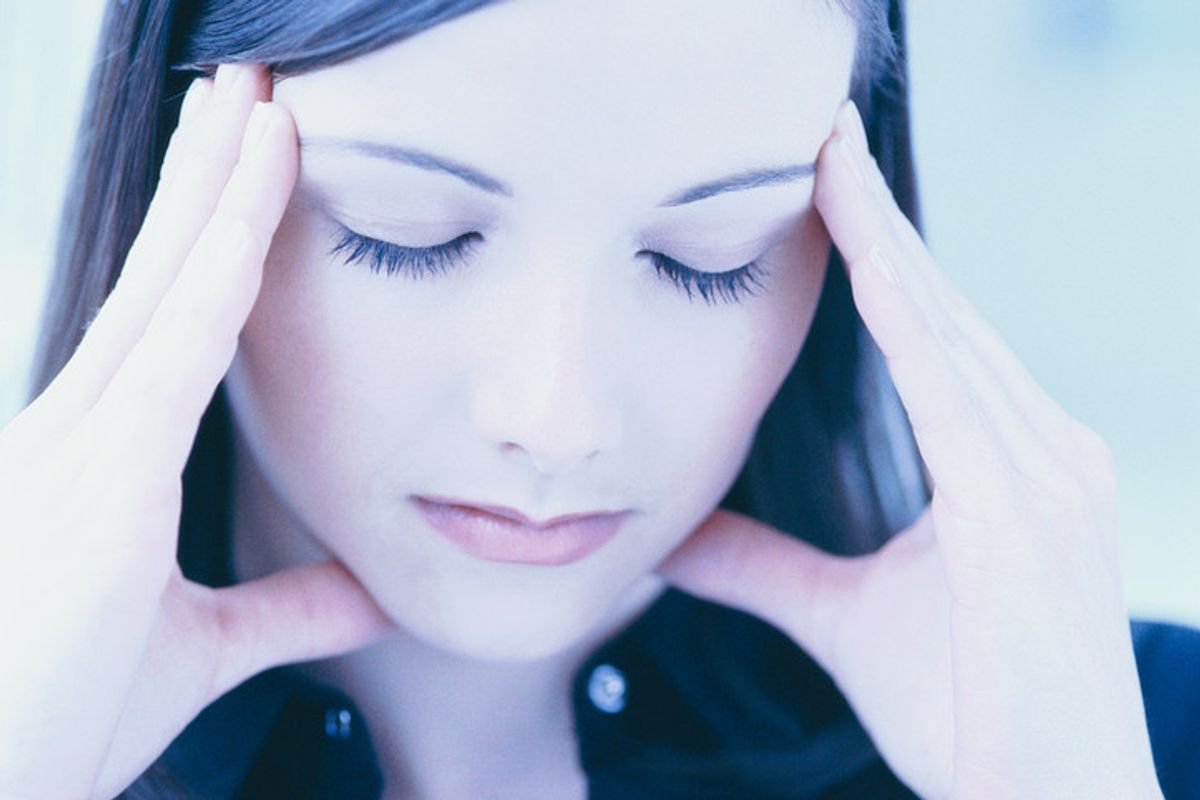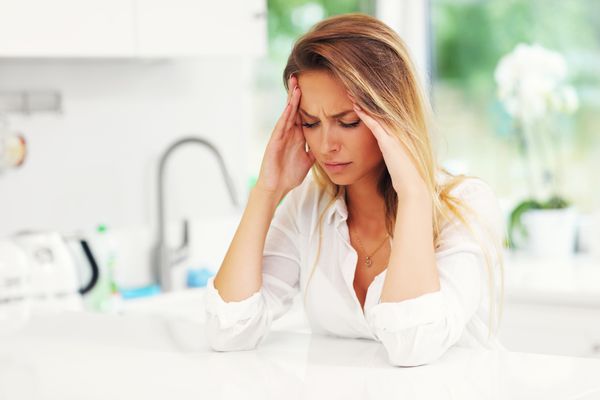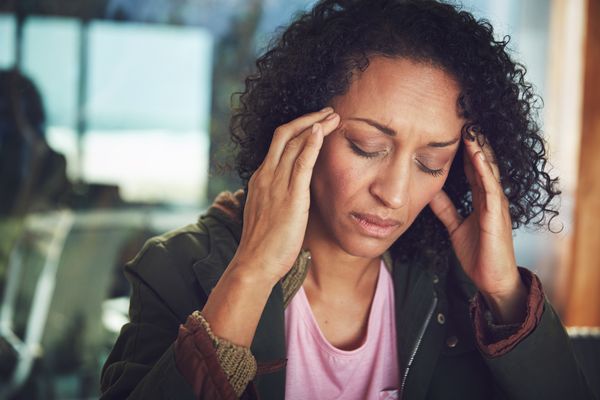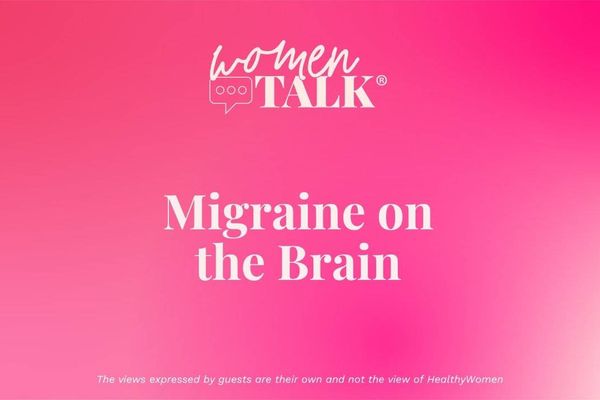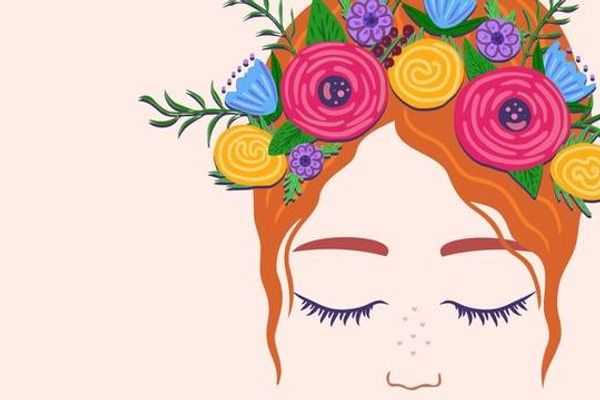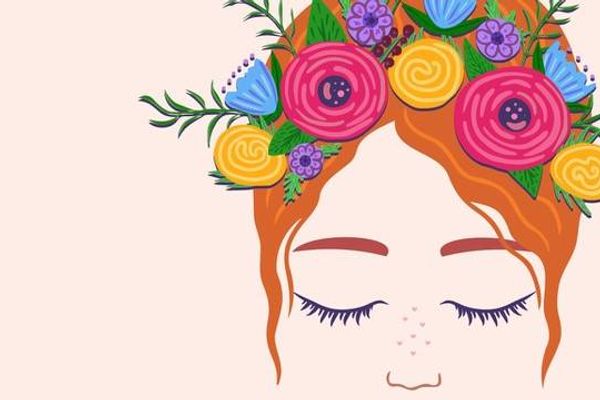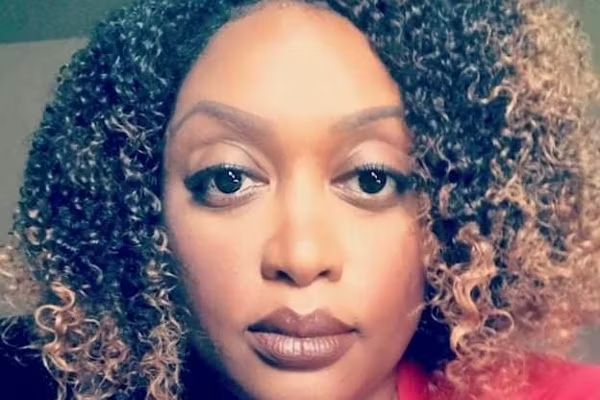Jennifer Johnson Avril turned to her friends for advice when the migraine medication her doctor had prescribed for her severe headaches failed to end her suffering. The Brooklyn woman had only infrequent migraines when she was in her mid-20s, but they intensified over the years. By the time she reached her mid-30s, Jennifer was having migraines once a month or more often, sometimes lasting for several days.
Because migraines affect three times as many women as men, Jennifer's friends understood the relentless pain and other physically debilitating effects she was experiencing. Yet they, too, weren't getting much help from their medicines.
So she decided to try another route. Remembering that acupuncture had helped her previously when she had back pain, she consulted the same acupuncturist for migraine help. "She treated me once a week for three or four weeks," says Jennifer, who is 38. "I had a great deal of relief."
Now, five months after the treatments, she adds, "I've had a couple of stress-related headaches, but they didn't tip over into migraines."
No easy answers
As Jennifer's experience shows, using acupuncture for headaches can help. A recent review of research studies, conducted by scientists at Duke University Medical Center, compared the ancient Chinese treatment to medication therapy in people with chronic headache, including migraine. The study showed that acupuncture was superior in lessening headache intensity and frequency, as well as increasing the rate at which subjects responded to treatment.
Even so, acupuncture isn't the answer for everyone. "What causes a migraine for one person might be different for another," says Helané Wahbeh, ND, MCR, a researcher in the Department of Neurology, Oregon Health and Science University, Portland, Oregon. Those differences mean there's no one headache solution—whether pharmaceutical, alternative or complementary.
Yet there's good reason to consider a variety of options that don't require a prescription. Traditional medications that are prescribed or available over-the-counter for migraine and garden-variety tension headaches have risks of side effects, may cause overuse headache, can lead to addiction and are often not to be used by pregnant women.
Good scientific research shows that supportive mind-body therapies, changes in eating or drinking habits and behavioral techniques can lessen both the frequency and intensity of recurrent headaches. In many instances, these methods need to be followed before a headache begins—not used only to cut off pain after it starts.
Write your way to relief
Before trying any headache solution, it helps to figure out what triggers your pain, if possible. Triggers differ among people. Some triggers may lead to tension headaches; others may cause migraines, bringing pain to certain parts of your head as well as nausea, vomiting and light or noise sensitivity (not everyone has all symptoms).
Keep a diary of your headache episodes. Note what activities you were doing, emotions you were experiencing and foods or drinks you had consumed before your headache began. Also write down when you had your last several meals, if you were bothered by allergies at the same time, what the weather was like and if you had exercised recently.
It's also important to record where you are in your menstrual cycle when the headache happens. Hormonal imbalances during your cycle, when you're pregnant or during menopause can trigger migraines.
In addition, keep track of what works to relieve your headaches. The best way to manage, reduce and possibly eliminate headaches is to track the patterns of what starts and stops them for you.
12 headache-busting helpers
These methods have been helpful in treating some women's headaches. Consult your health care provider before taking any herbal remedy or nutritional supplement. Pregnant or nursing women should avoid herbals.
- Biofeedback: This earned technique, when performed correctly with mechanical sensors, helps control breathing, body temperature, heart rate, muscle tension and other physical responses.
- Relaxation therapy: This progressive muscle relaxation method reduces tension and muscle arousal and relieves pain. It is easily learned and practiced at home.
- Cognitive behavioral therapy: Learn to replace negative self-talk with a script that produces healthier thoughts. It is usually practiced with a trained therapist. Frequent tension headaches might be due to unrecognized depression; read more here.
- Transcutaneous electrical nerve stimulation (TENS): Sometimes known as electrical stimulation, this therapy involves attaching a small transmitter to the skin and emitting electrical impulses that block pain signals. It has been used in clinical settings to treat various types of chronic pain, and recently the U.S. Food and Drug Administration approved a TENS device that can be used at home to help prevent migraines. The battery-powered device, Cefaly, resembles a plastic headband with an electrode that attaches to the forehead. It is only approved for adults and requires a prescription; women who are pregnant or might become pregnant should discuss usage with their health care professionals.
- Magnesium: Some migraine sufferers have low brain magnesium during attacks and may be deficient between episodes, says Christina Sun-Edelstein, MD, a headache specialist until recently at the New York Headache Center, now at St. Vincent's Hospital in Melbourne, Australia. "Women who have menstrually related migraine may particularly benefit from magnesium treatment," she adds.
- Cindy Rayfield of Denver was having frequent migraines when she started taking magnesium supplements. She says her headaches are "definitely fewer now. I've gone as long as a year without a migraine since taking them."
- Riboflavin: Also known as vitamin B2, this nutrient may help prevent headache by improving oxygen metabolism. It is taken in oral supplement form.
- Exercise: There's some evidence that aerobic exercise can help reduce migraine pain. Although there's no strong research linking exercise with helping end headaches, "it makes sense because exercise releases endorphins and that reduces stress levels," says Dr. Wahbeh. "Exercise is good for everything."
- Butterbur: Never heard of it? Petasites hybridus, or butterbur, is an herbal remedy that research has shown to prevent migraines, probably by reducing inflammation.
- CoQ10: Officially known as Coenzyme Q10, this antioxidant supplement lessens headache frequency.
- Feverfew: This herbal is shown to work in preventing migraines.
- Eliminate food and drink triggers: Caffeine (in coffee, tea, chocolate and some pain medications) can either worsen or help headache, depending upon how much you take and how often, Dr. Sun-Edelstein notes. Alcohol, especially red wine, is a common headache trigger. Other possible triggers include: foods with tyramine (aged cheese, cured meats, smoked fish); artificial sweeteners; monosodium glutamate (also known as hydrolyzed vegetable protein, yeast extract, and more); nitrites; and nitrates. Avoid high-carbohydrate meals or high-sugar treats, which cause blood sugar to soar, then drop, rapidly.
- Eat regularly: Fasting or skipping meals triggers headaches. "The importance of eating breakfast, lunch and dinner cannot be overemphasized," says Dr. Sun-Edelstein. Have mid-morning and mid-afternoon snacks if your headaches begin when you're hungry.
- Drink more water: Dehydration causes headaches. It's easy to not realize how little water you're drinking (caffeinated beverages don't count—they dehydrate you), so pour a glass, sip and refill throughout your day.

